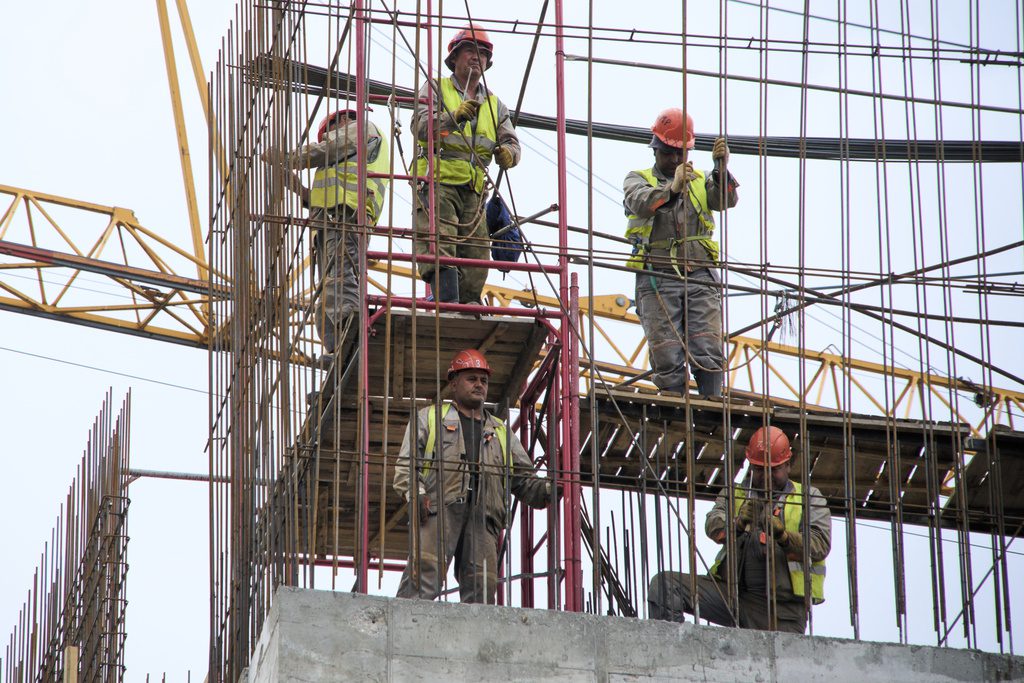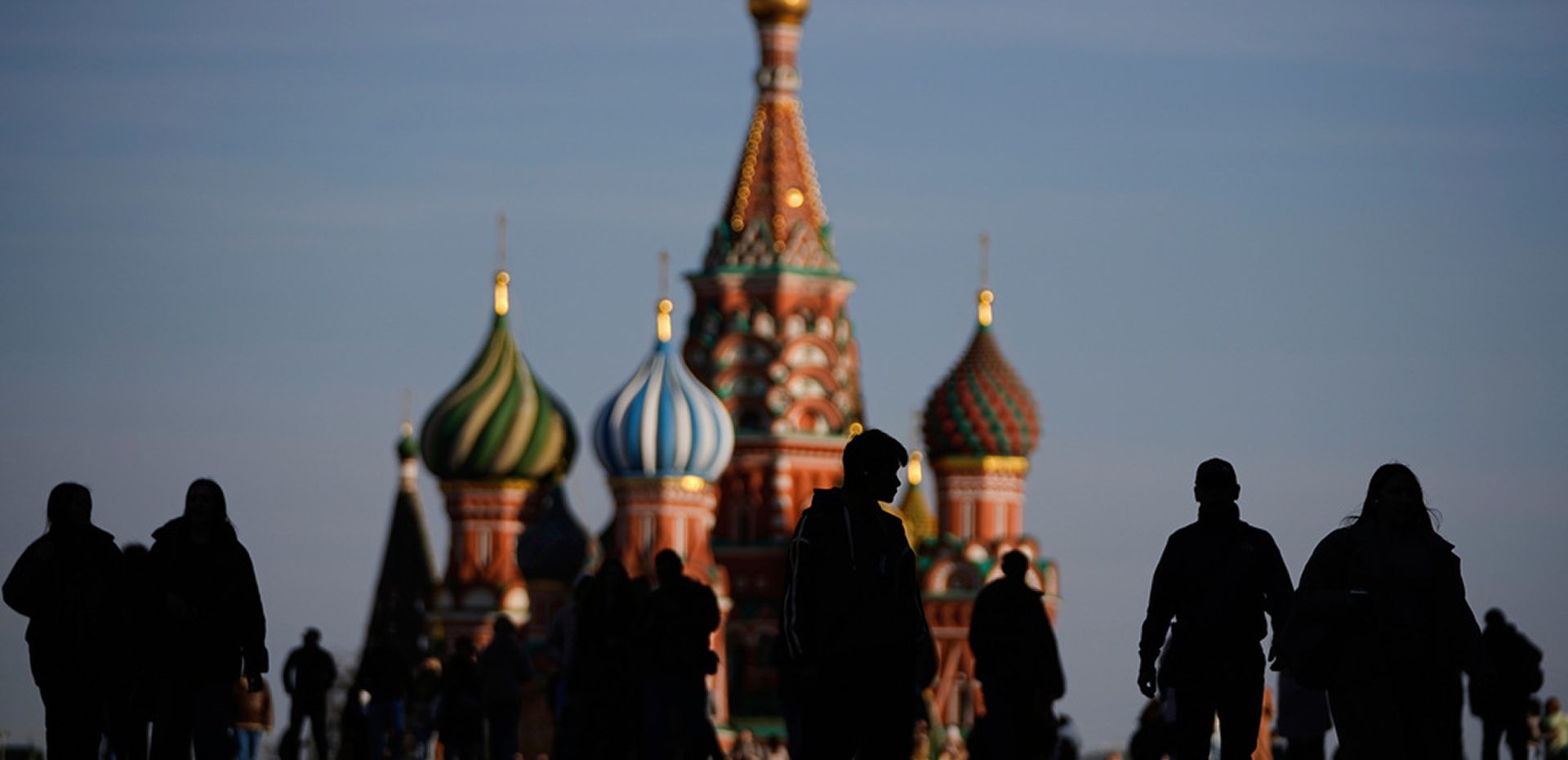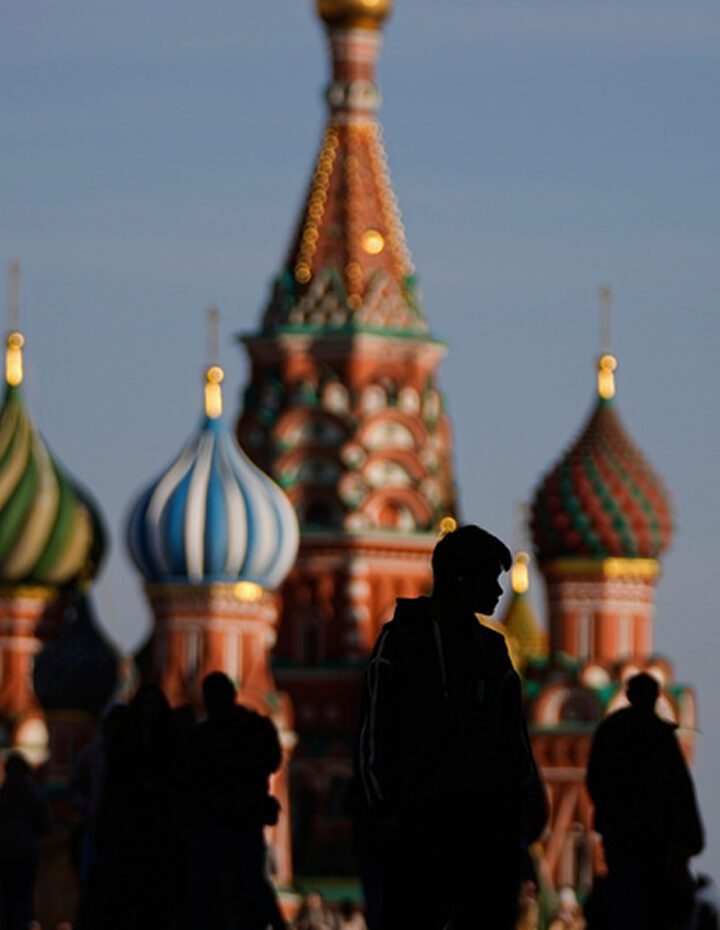This interview was originally published by Das Parlament on 26 September 2025.
Mr Aleksashenko, in the West there is a widespread view that the Russian economy is already in poor condition, and that increased pressure alone would force Putin to make concessions in Ukraine. Is this correct?
If the Russian economy were a person, one could say that its body temperature is 37.8 degrees. The person realises that something is wrong, and their productivity declines somewhat, yet this does not prevent them from living and working. Russia exports raw materials for which global demand continues to grow. For the Russian economy, normal growth would be 3–4 per cent, but instead it is sliding into stagnation. With a ‘normal temperature’, one might expect inflation at around 4 per cent, but in fact it stands at 8, 10, or even 12 per cent. However, neither slower growth nor high inflation are signs of a crisis that would push the economy to the brink of collapse.
In recent months there have also been reports of growing budgetary problems due to the costs of the war against Ukraine.
Russia is financing the war primarily not through borrowing, but through taxes paid by the population and the civilian sector of the economy. The Ministry of Finance is keeping the federal budget deficit at a relatively low level – below 2 per cent of GDP. In global terms, this figure is entirely acceptable. According to Russia’s statistical agency, household incomes are rising, the government has sufficient funds to cover military operations, and there is even some room for higher social spending. Investment outlays are indeed declining slightly, and the regional governments’ budget deficits are somewhat higher than before the war, but this is far from catastrophic. I would even argue that the challenges facing the German economy are considerably more serious.
Yet even Russia’s minister of economic development recently warned of a recession next year…
No one can predict what will happen to the Russian economy in the coming year, since much depends on political developments: will there be an agreement between Russia, Ukraine, and the United States? Will Putin raise or cut military expenditure? For me, a recession means a contraction of 5–10 per cent. If, in the Russian case, growth forecasts range from minus 1 per cent to plus 1.5 per cent, this is stagnation – nothing more, nothing less. It is important to add that an end to the war and a reduction in military production would trigger a far more significant downturn in the economy. But should this be a cause for alarm?
But why, then, is there so much talk about the imminent collapse of the Russian economy?
Because many in Europe and the United States would like the war to end by itself, without the need for serious, costly, and not always popular decisions. They believe they simply have to wait until Putin runs out of money. European and American politicians often prefer to delude themselves. It is true that in 1990 the Soviet economy collapsed because it could no longer bear the burden of military spending. Yet at that time it was a planned economy, in which balance was maintained by bureaucratic decisions. In the second half of the 1980s, politicians took decisions that undermined this balance and prohibited bureaucrats from taking corrective measures. Today’s Russian economy is a market economy, where equilibrium is maintained by the price mechanism. Inflation is harmful, but it is nonetheless the economy’s way of responding to imbalances.
But is the shortage of skilled labour not becoming an increasingly serious problem?
There is indeed a shortage of labour, since some people go to the front for higher pay while others emigrate. Yet the economy responds to this by raising wages. The average salary already exceeds 100,000 roubles – more than 1,000 euros – which is very high compared to Eastern Europe. Such wages reflect the strain in the labour market and fuel inflation, but it should be remembered that enterprises producing military goods receive budgetary funds and can therefore pay high wages to retain their workers.

So, has Putin drawn lessons from the collapse of the Soviet Union?
Yes. He also learnt from the financial crisis of 1998 – just a month before he became director of the Federal Security Service (FSB). He witnessed how economic problems could trigger events which lead to a change of government and the transfer of power to the opposition. One may characterise Putin’s economic policy in various ways, but he does respect free pricing and insists on strict limits on the budget deficit and public debt.
The European Union is currently adopting its 19th package of sanctions against Russia. Do these sanctions have any impact on the country?
Sanctions are most effective when applied collectively by the entire international community, curbing both exports and imports. But when India, China, and many other states do not participate, it is clear from the outset that the pressure is far weaker than it could be. Moreover, three quarters of Russia’s exports consist of oil, gas, timber, fertilisers, metals, and other primary commodities without which the global economy cannot function. Russia’s share in global oil sales is about 15 per cent. Imagine what would happen if it were excluded from the world market – what would happen to prices? The same applies to several other raw materials.
But was Russia not on the brink of collapse in the first year of the war?
Western sanctions worked very effectively in the initial phase – from February to June 2022 – through restrictions on oil exports, price caps, and so on. Economic contraction in the spring of that year was running at an annual rate of 10 per cent, and even the government forecast a more substantial decline in the second half of the year. Yet the global economy did not stop buying Russian oil. Only logistics and supply chains changed: oil now had to be transported not 600 kilometres, but 3,600. Russian banks could no longer make payments in dollars or euros, and exporters could not receive revenues in those currencies.
As a result, alternative payment systems were created using non-traditional currencies, stablecoins, and gold. Russia had to persuade India and China to buy more of its oil, offering discounts in return and assembling a shadow fleet. Private businesses adapted by importing goods through third countries. By mid-year, Putin decided to increase military spending sharply, financed by previously accumulated fiscal reserves. This reversed the downward trend: the economy began to grow slowly, because restrictions had become a new normal, raising costs and reducing efficiency but not extinguishing business activity. It became clear that being forced to increase military expenditure does not deter Putin, and that sanctions alone cannot stop him.
So the EU might not even need to adopt these sanction packages?
My sense is that the adoption of each new package serves mainly to demonstrate that the European bureaucracy in Brussels is functioning – and that we are supporting Ukraine. Whether or not this causes damage to the Russian economy is a secondary issue, hardly worth consideration. Look: neither in the United States nor in Europe is there any serious study of the effectiveness of the sanctions applied to Russia.
Do ordinary Russians feel the consequences of sanctions?
They see it in the range of goods available in shops: European brands have been replaced by Chinese, Turkish, and Vietnamese ones. But does this significantly affect the lives of most people? No. Instead of IKEA there is Russian furniture, instead of Coca-Cola a drink resembling Coca-Cola, and instead of Western cars Chinese ones. This has already become the norm. People have forgotten about the sanctions.

In recent months, a new strategy seems to have emerged: Ukraine is striking Russia’s oil production, while the West is tightening restrictions on oil exports from Moscow. Could this bring success?
The only real limitation on Russian oil would be physical: blocking the Danish straits so that tankers carrying oil from Primorsk cannot pass. Such a naval blockade would halt half of Russia’s oil exports, delivering a very serious blow to the economy. But let us consider the consequences for Western economies. Are you ready for global oil prices to soar to 150, 200, or even 250 dollars per barrel? All other sanctions and tariffs are meaningless, since China and India cannot give up Russian oil. If they did, they would have to buy in the Middle East, which would generate competition with Europe and drive prices higher.
And what about military strikes on oil refineries?
Statistics in Russia are kept secret, so we do not know exactly what is happening. The intensity of attacks in recent months has increased significantly, and many refineries have been shut down for repairs. As a result, the Russian government is limiting petrol exports. But Russia produces twice as much diesel fuel and fuel oil as it consumes. The economy will not collapse if these exports fall by 10 or 20 per cent.
Do you believe Putin will not end the war in the near future because of economic pressure?
There is a well-known Russian anecdote. A father comes home and says: ‘I have bad news – vodka has become more expensive.’ The son asks: ‘Does this mean you will drink less?’ ‘No, son,’ replies the father, ‘it means you will eat less.’ This applies to the question of whether the Kremlin will stop the war if there is not enough money in the budget for the army or for investment projects. Officials at the Ministry of Finance understand that the budget needs funds, so they keep proposing new ideas: a tax on banks’ windfall profits and an increase in VAT.
And where does this money go?
In Russia, the decision is made by one man – Putin. And why should he stop the war, which for him is the most fundamental issue? In his view, ending the war on terms other than his own would mean that Russia has lost.

